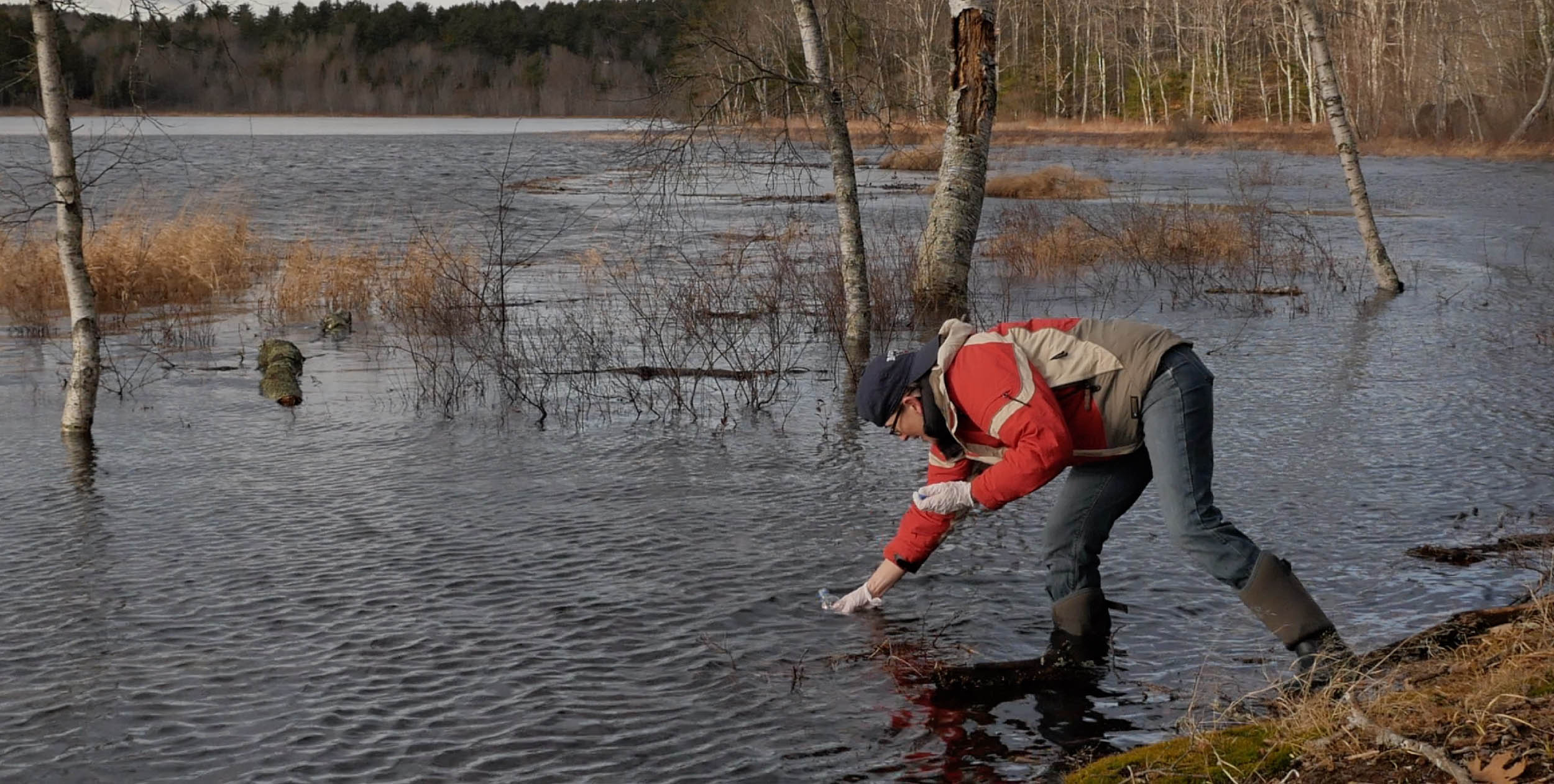eDNA

Quick Links
LSM Programs & Tools
Latest News from LSM
Forms & Data Sheets
Environmental DNA (eDNA) is a method of testing for the presence of specific species or groups of organisms in a background sample. Unlike traditional DNA testing, eDNA can identify organisms that are not directly present in a sample but have left genetic material behind or free-floating in the water. eDNA is diluted and distributed by currents and other hydrological processes, but it only lasts about 7–21 days, depending on environmental conditions (Dejean and others, 2011). eDNA may also be an effective tool for early detection of aquatic invasive species or potentially dangerous assemblages of algae.
University of Maine graduate students have created a helpful series of videos that can be used to instruct volunteers in the proper method of taking eDNA samples.




